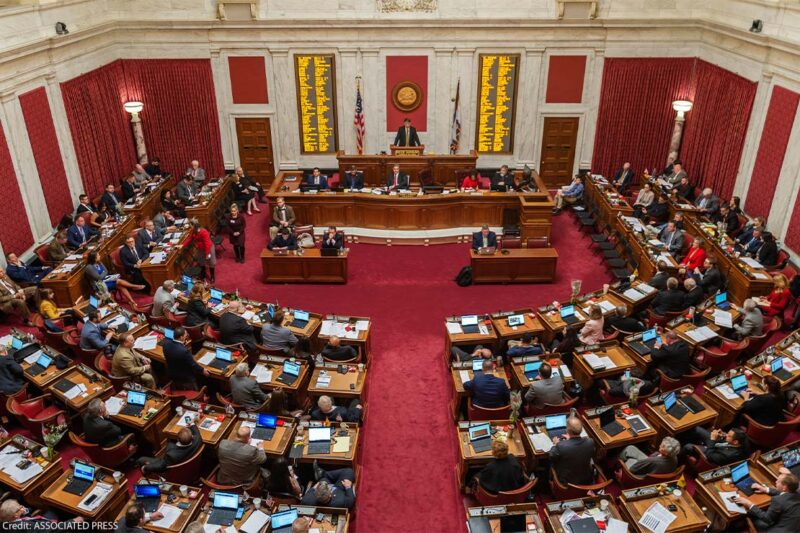West Virginia Lawmakers are Pushing Public Schools to Teach Creationism


All you need to know about the current condition of West Virginia’s public-education system is summed up in one recent headline: “West Virginia public schools are underfunded, understaffed and underperforming.” To take one marker, only 28 percent of students in the state are proficient in science. These are big problems that require expansive, thoughtful solutions. Lawmakers should be devoting all available time and resources to protecting public-school students’ educational futures. Instead, they’re working to pass a bill, SB 619, that would exacerbate these crises. If enacted, the bill would allow public schools to teach intelligent design — a form of creationism — as a “theory of how the universe and/or humanity came to exist.”
West Virginia lawmakers know that it’s unconstitutional to teach creationism in public schools.
Teaching any form of creationism in public schools is unconstitutional. It undermines science education, and it is likely to embroil school districts in lengthy and costly litigation. In fact, that is exactly what happened in Dover, Pennsylvania, two decades ago. Despite clear case law that bars teaching creationism in public schools and prohibits other efforts to suppress or chip away at evolution education, the Dover Area School District incorporated into its biology lessons a disclaimer questioning the validity of evolution and promoting intelligent design as an alternative. The ACLU of Pennsylvania and Americans United for Separation of Church and State sued the school district on behalf of local families.
The school district tried to defend its policy by arguing that, unlike other forms of creationism, intelligent design is not a religious belief and is thus properly taught as a scientific alternative to evolution. But after a six-week trial during which extensive expert evidence about intelligent design was presented, Judge John E. Jones III — who was nominated to the bench by President George W. Bush — unequivocally rejected the district’s arguments. He concluded that intelligent design is merely “creationism re-labeled” and “is not science” because it “fails to meet the essential ground rules that limit science to testable, natural explanations.” And he ruled that incorporating intelligent design into public-school science classes violates the Establishment Clause of the First Amendment.
It undermines science education, and it is likely to embroil school districts in lengthy and costly litigation.
The massive loss in the case came with a massive bill: The district owed the plaintiffs $2,000,000 in attorneys’ fees, although the plaintiffs agreed to accept only half that amount in recognition of the district’s limited resources and the fact that the community had voted out the school board members who had insisted on pushing intelligent design.
West Virginia lawmakers know that it’s unconstitutional to teach creationism in public schools. They know that, just like in Pennsylvania, schools that take up the legislature’s invitation to do so will be sued and will face millions of dollars in costs and fees. They also know that attacking the integrity of science education will cause West Virginia students to fall even further behind, leaving them unprepared for advanced college coursework in scientific areas, and subsequently disadvantaging them in the competitive technical and scientific job sectors. And they know that employers with science- and tech-related businesses may hesitate to settle in West Virginia if they believe that its government does not value, and many of its residents do not possess, basic scientific knowledge.
Despite knowing all of this, lawmakers continue to press forward with SB 619. Maybe they believe it will score them political points with certain extreme religious groups and others seeking to inject religion into public schools. Any short-term political gain, however, will come at appalling long-term costs: the rights of families and faith communities, not government officials, to instill religious beliefs in their children; the educational and employment success of students; the solvency of public schools already struggling financially; and the economic and job prospects for the entire state of West Virginia.

